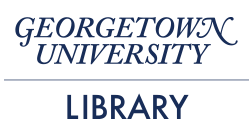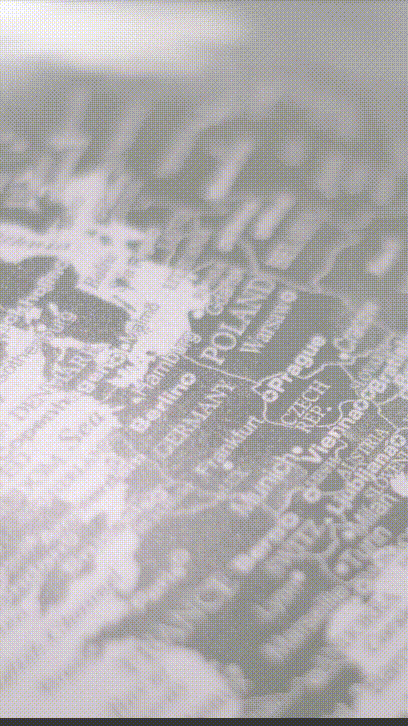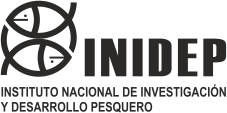Epibiosis by Balaenophilus unisetus (Copepoda: Harpacticoida) in fin whale, Balaenoptera physalus (Mysticeti: Balaenopteridae), stranded in Margarita Island, Venezuela
DOI:
https://doi.org/10.47193/mafis.3322020301108Keywords:
Fin whale, Epibiont copepod, Marine mammals, Geographical distribution, Caribbean SeaAbstract
Epibiosis is a common strategy in many aquatic organisms, and can be a very valuable study tool in ecology and conservation. Baleen whales are a very vulnerable taxon to fisheries, which requires great efforts for their preservation. The stranding of a male specimen of Balaenoptera physalus in northeastern Venezuelan waters made it possible to properly assess the epibiotic phenomenon. The cetacean integument was evaluated in situ and some barbs were transferred to the laboratory for detailed study. The only epibiont observed, although in very abundant numbers, was the harpacticoid copepod Balaenophilus unisetus. Different life stages were detected and described: adult, copepodites (five), and nauplii (three), accompanied by illustrations and proper measurements. Morphological, biogeographic and host-related features are presented and discussed. Highlights of this study are: the geographical scope expansion of the copepod, being the first record in Western Atlantic, Caribbean, and Venezuelan waters; the observation of a few discrepant morphological characters from those previously described, which could refer to different morphotypes of the epibiont; and the first detection of a third naupliar stage for B. unisetus.
Downloads
References
Aguilar A, García-Vernet R. 2018. Fin whale, Balaenoptera physalus. En: Würsig B, Thewissen JGM, Kovacs K, editores. Encyclopedia of marine mammals. 3ra ed. Londres: Academic Press. p. 368-371.
Aguilar Vila A. 1985. Biología y dinámica poblacional del rorcual común (Balaenoptera physalus) en las aguas ibéricas [tesis doctoral]. Barcelona: Facultad de Biología, Universidad de Barcelona. 58 p.
Allen GM. 1916. The whalebone whales of New England. Mem Bost Soc Nat Hist. 8 (2): 106-322.
Aurivillius POC. 1879. On a new genus and species of Harpacticida. Bihang till K Svenska Vet Akad Handligar. 5 (18): 1-16.
Aznar FJ, Badillo FJ, Mateu P, Raga JA. 2010. Balaenophilus manatorum (Ortíz, Lalana and Torres, 1992) (Copepoda: Harpacticoida) from loggerhead sea turtles, Caretta caretta, from Japan and the western Mediterranean: amended description and geographical comparison. J Parasitol. 96 (2): 299-307.
Badillo FJ, Puig L, Montero FE, Raga JA, Aznar FJ. 2006. Diet of Balaenophilus spp. (Copepoda: Harpacticoida): feeding on keratin at sea? Mar Biol. 151 (2): 751-758.
Badillo Amador FJ. 2007. Epizoítos y parásitos de la tortuga boba (Caretta caretta) en el Mediterráneo occidental [tesis doctoral]. Valencia: Facultad de Ciencias Biológicas, Universitat de Valencia. 262 p.
Balbuena JA, Aznar FJ, Fernández M, Raga JA. 1995. Parasites as indicators of social structure and stock identity of marine mammals. En: Blix AS, Walløe L, Ulltang Ø, editores. Whales, seals, fish and man. Vol. 4. Elsevier. p. 133-139.
Bannister JL. 2018. Baleen whales (Mysticeti). En: Würsig B, Thewissen JGM, Kovacs K, editores. Encyclopedia of marine mammals. 3ra ed. Londres: Academic Press. p. 62-69.
Bannister JL, Grindley JR. 1966. Notes on Balaenophilus unisetus P.O.C. Aurivillius, 1879, and its occurrence in the southern hemisphere (Copepoda, Harpacticoida). Crustaceana. 10: 296-302.
Bolaños-Jiménez J, Bermúdez-Villapol LA, Villarroel-Marin AJ. 2015. Ballena rorcual común. En: Rodríguez JP, García-Rawlins A, Rojas-Suárez F, editores. Libro rojo de la fauna venezolana. Caracas: Provita y Fundación Empresas Polar. p. 18-20.
Chullasorn S, Dahms H-U, Iwasaki N, Kangtia P, Ferrari FD, Jeon HJ, Yang W-X. 2012. Naupliar development of an ancorabolid, Paralaophontodes sp. (Copepoda: Harpacticoida) sheds light on harpacticoid evolution. Zool Stud. 51 (3): 372-382.
Ciçek E, Öktener A, Capar OB. 2007. First report of Pennella balaenopterae Koren and Danielssen, 1877 (Copepoda: Pennelidae) from Turkey. Turkiye Parazitol Derg. 31 (3): 239-241.
Cocks AH. 1885. Additional notes on the finwhale fishery on the north european coast. Zoologist. 3 (9): 134-142.
Collett R. 1886. On the external characters of Rudolphi’s rorqual (Balaenoptera borealis). Proc Zool Soc London. 17-18: 243-265.
Colón-Llavina MM, Mignucci-Giannoni AA, Mattiucci S, Paoletti M, Nascetti G, Williams Jr EH. 2009. Additional records of metazoan parasites from Caribbean marine mammals, including genetically identified anisakid nematodes. Parasitol Res. 105 (5): 1239-1252.
Coull BC. 1977. Marine flora and fauna of the Northeastern United States. Copepoda: Harpacticoida. NOAA Tech Rep NFMS. 49.
Dahms H-U, Qian P-Y. 2004. Life histories of the Harpacticoida (Copepoda, Crustacea): a comparison with meiofauna and macrofauna. J Nat Hist. 38 (14): 1725-1734.
Dalla Rosa L, Secchi ER. 1997. Stranding of a blue whale (Balaenoptera musculus) in Brazil: ‘true’ or pigmy? (SC/48/SH20). Rep Int Whal Commn. 47: 425-430.
Domènech F, Badillo Amador FJ, Raga JA, Aznar FJ. 2015. Epibiont communities of loggerhead marine turtles (Caretta caretta) in the western Mediterranean: influence of geographic and ecological factors. J Mar Biol Assoc UK. 95 (4): 851-861.
Esteves J, Figueredo A, Acosta R, Lira C, Bermúdez-Villapol LA. 2018. Primer registro de la interacción entre Isistius sp. (Elasmobranchii: Dalatiidae) y Balaenoptera physalus (Mysticeti: Balaenopteridae) en aguas venezolanas. Bol Invest Mar Cost. 47 (1): 43-149.
Fernandez-Leborans G. 2010. Epibiosis in Crustacea: an overview. Crustaceana. 83 (5): 549-640.
Ferrari FD, Dahms H-U. 2007. Post-embryonic Development of the Copepoda. Crustaceana Monographs. Vol. 8. Boston: Brill. 256 p.
Lang K. 1948. Monographie der Harpacticiden. Lund: Hakan Ohlsson Booksellers. 1682 p.
Lillie DG. 1910. Observations on the anatomy and general biology of some members of the larger Cetacea. Proc Zool Soc London. 1910: 769-792.
Mackintosh NA. 1942. The southern stocks of whalebone whales. Discov Reports. XXII. p. 197-300.
Mackintosh NA, Wheeler JFG. 1929. Southern blue and fin whales. Discov Reports. 1: 257-540.
Marcogliese DJ. 2004. Parasites: small players with crucial roles in the ecological theater. Ecohealth. 1 (2): 151-164.
Mignucci-Giannoni AA, Hoberg EP, Siegel-Causey D, Williams Jr EH. 1998. Metazoan parasites and other symbionts of cetaceans in the Caribbean. J Parasitol. 84 (5): 939-946.
Mogoe T, Bando T, Maeda H, Kato H, Ohsumi S. 2014. Biological observations of fin whales sampled by JARPAII in the Antarctic (SC/F14/J10). Scientific Contribution of the Institute of Cetacean Research presented to the IWC/SC Review Workshop of the Japanese Whale Research Program under Special Permit in the Antarctic-Phase II (JARPAII), February 2014. 18 p.
Ogawa K, Matsuzaki K, Misaki H. 1997. A new species of Balaenophilus (Copepoda: Harpacticoida), an ectoparasite of a sea turtle in Japan. Zoolog Sci. 14 (4): 691-700.
Pino Álvarez JJ. 2014. Sobre algunos parásitos de cetáceos observados en la factoría ballenera de Balea (Cangas, Pontevedra, Galicia, NO España). Ballenas. 2: 1-10.
Pinou T, Domènech F, Lazo-Wasem EA, Majewska R, Pfaller JB, Zardus JD, Robinson NJ. 2019. Standardizing sea turtle epibiont sampling: Outcomes of the Epibiont Workshop at the 37th International Sea Turtle Symposium. Mar. Turt. Newsl. 157: 22-32.
Raga JA, Fernández M, Balbuena JA, Aznar FJ. 2018. Parasites. En: Würsig B, Thewissen JGM, Kovacs K, editores. Encyclopedia of marine mammals. 3ra ed. Londres: Academic Press. p. 678-686.
Raga JA, Sanpera C. 1986. Ectoparásitos y epizoitos de Balaenoptera physalus (L., 1758) en aguas atlánticas ibéricas. Investig Pesq. 50 (4): 489-498.
Reilly SB, Bannister JL, Best PB, Brown M, Brownell RL, Butterworth DS, Clapham PJ, Cooke J, Donovan GP, Urbán J, Zerbini AN. 2016. Balaenoptera physalus. IUCN Red List of Threatened Species; [actualizado 6 marzo 2016; consultado 4 marzo 2017]. http://www.iucnredlist.org/details/2478/0.
Rossel S, Martínez Arbizu P. 2019. Revealing higher than expected diversity of Harpacticoida (Crustacea: Copepoda) in the North Sea using MALDI-TOF MS and molecular barcoding. Sci Rep. 9 (9182): 1-14. DOI: https://doi.org/10.1038/s41598-019-45718-7
Roumbedakis K, Drábková M, Tyml T, di Cristo C. 2018. A perspective around cephalopods and their parasites, and suggestions on how to increase knowledge in the field. Front Physiol. 9: 1573.
Sars GO. 1910. An account of the Crustacea of Norway with short descriptions and figures of all the species. Vol. V. Copepoda Harpacticoida. Part XXIX-XXX: Tachidiidae, Metidae, Balaenophilidae, supplement. Bergen: The Bergen Museum. p. 337-368.
Sarvala J. 1977. The naupliar development of six species of freshwater harpacticoid Copepoda. Ann Zool Fennici. 14 (3): 135-161.
Suárez-Morales E, Morales-Vela B, Padilla-Saldívar J, Silva-Briano M. 2010. The copepod Balaenophilus manatorum (Ortíz, Lalana and Torres, 1992) (Harpacticoida), an epibiont of the Caribbean manatee. J Nat Hist. 44 (13-14): 847-859.
Vervoort W, Tranter D. 1961. Balaenophilus unisetus P.O.C. Aurivillius (Copepoda Harpacticoida) from the southern Hemisphere. Crustaceana. 3 (1): 70-84.
Wahl M. 1989. Marine epibiosis. I. Fouling and antifoulinig: some basic aspects. Mar Ecol Prog Ser. 58: 175-189.

Published
Issue
Section
License
Copyright (c) 2020 Juan M. Esteves , Rodrigo Acosta , Luis Bermúdez, Carlos Lira , Arnaldo Figueredo

This work is licensed under a Creative Commons Attribution-NonCommercial-ShareAlike 4.0 International License.
Authors of articles published in Marine and Fishery Sciences retain copyright on their articles, except for any third-party images and other materials added by Marine and Fishery Sciences, which are subject to copyright of their respective owners. Authors are therefore free to disseminate and re-publish their articles, subject to any requirements of third-party copyright owners and subject to the original publication being fully cited. Visitors may also download and forward articles subject to the citation requirements. The ability to copy, download, forward or otherwise distribute any materials is always subject to any copyright notices displayed. Copyright notices must be displayed prominently and may not be obliterated, deleted or hidden, totally or partially.
This journal offers authors an Open Access policy. Users are allowed to read, download, copy, distribute, print, search, or link to the full texts of the articles, or use them for any other legal purpose within the Creative Commons 4.0 license (BY-NC-SA), without asking prior permission from the publisher or the author. This is in accordance with the BOAI definition of Open Access.























